RRS Sir David Attenborough icebreaker
RRS Sir David Attenborough icebreaker current position
The current location of RRS Sir David Attenborough icebreaker is in Southern Ocean cruising en route to SCIENCE SITES. The AIS position was last reported 37 minutes ago.
Current PositionSpecifications of RRS Sir David Attenborough icebreaker
| Year of build | 2021 / Age: 5 |
| Flag state | Falkland Islands |
| Builder | Cammell Laird (Merseyside, Birkenhead, England) |
| Building cost | GBP 200 million (USD 250 million) |
| Speed | 13 kn / 24 km/h / 15 mph |
| Length (LOA) | 129 m / 423 ft |
| Beam (width) | 24 m / 79 ft |
| Gross Tonnage | 15000 gt |
| Passengers | 62 |
| Crew | 30 |
| Owner | UK government (NERC) |
| Operator | British Antarctic Survey (BAS) |
RRS Sir David Attenborough icebreaker Review
Review of RRS Sir David Attenborough icebreaker
RRS Sir David Attenborough is a British icebreaking vessel commissioned in 2021. The UK's newest icebreaker is used as a logistics (research/survey/cargo) supply ship serving British Antarctica-based scientific stations with roundtrip departures from Port Stanley (Falkland Islands). RRS stands for "Royal Research Ship".
Royal research ships are the UK's merchant navy vessels conducting scientific research for the British Government (HMG). The list of organizations that are allowed to operate RRS vessels includes NERC (abbrev "Natural Environment Research Council"), BAS (abbrev "British Antarctic Survey") and NOC (abbrev "National Oceanography Centre"). However, a warrant from the British monarch has required a vessel to be designated as RRS. The UK's current fleet of Royal Research Ships includes the following vessels (the year built in brackets): RRS James Cook (2007), RRS Discovery (2013) and RRS Sir David Attenborough (2021).
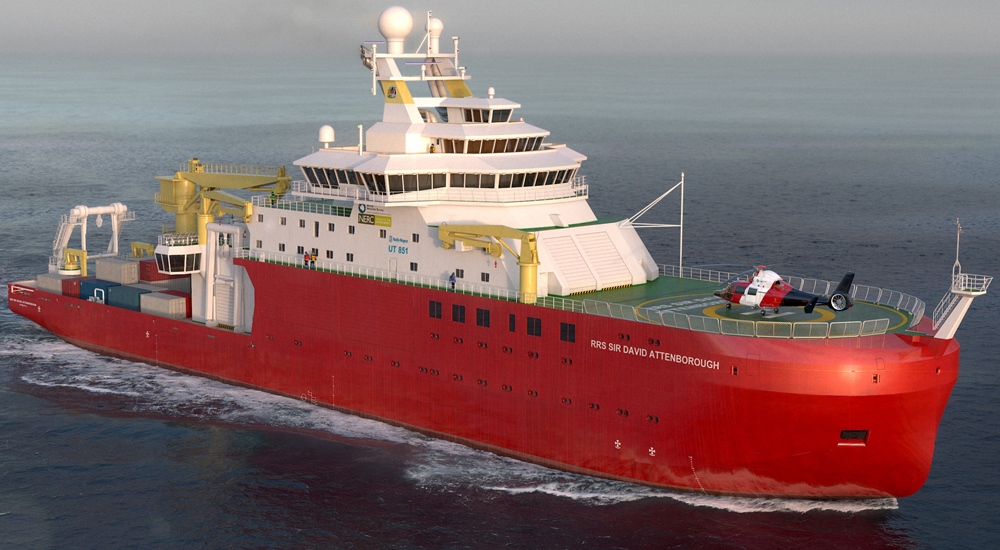
RRS Sir David Attenborough ship was ordered by the British Government to replace two of the UK's existing polar vessels (operated under charter) - RRS James Clark Ross (1990) and RRS Ernest Shackleton (1995). The vessel is named after Sir David Frederick Attenborough (1926) - British broadcaster and naturalist, best known as the writer and presenter of "The Life Collection" (24-DVD box set by BBC Natural History Unit).
The ship's construction started in July 2016. In 2014, the British Government announced funding for an icebreaker construction project for BAS (British Antarctic Survey). The new icebreaker is fully equipped with latest technology instrumentation for polar research purposes.
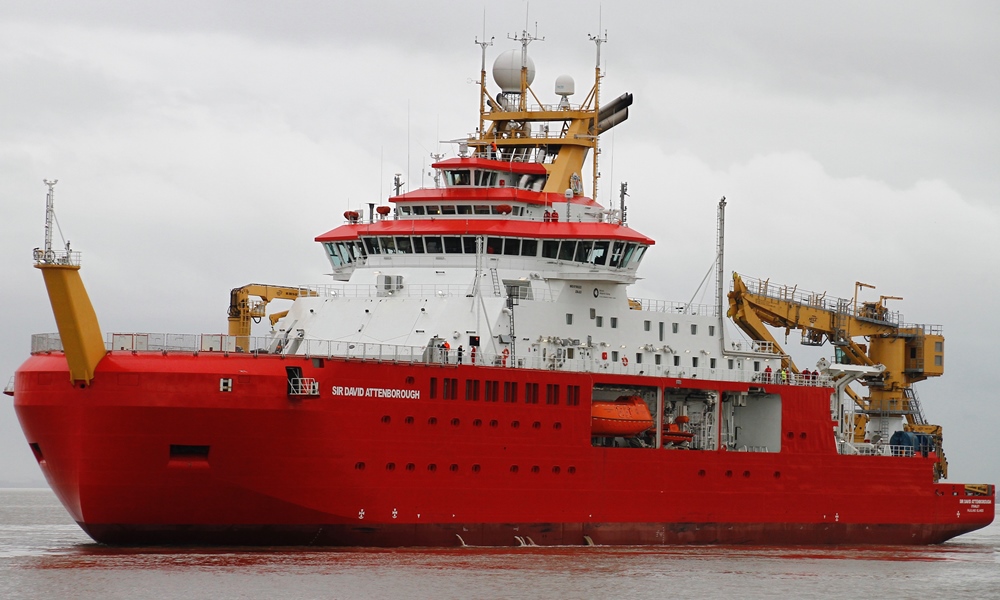
The ship design was developed by the private contractor Houlder Ltd (basic design, facility configuration, consultation). In 2015, BAS contracted Rolls-Royce Marine to provide the ship's final (detailed) design. The British shipbuilding company Cammell Laird (shipyard Birkenhead, England) was selected for the vessel's construction. The ship's keel-laying ceremony was held on October 17, 2016.
Sir David Attenborough icebreaker vessel details
The icebreaker features latest technology equipment for polar surveys (acoustic, seismic, subsea), including ADCP (acoustic), echo sounder, biological echo sounder, biological sonar, omnidirectional sonar, USBL, telemetry and net monitoring systems, onboard meteo weather station, cargo handling facilities, airborne robots, scientific moon pool, ROVs (remotely operated underwater vehicle / robotic submarines), marine gliders, Kayaks (large-capacity inflatable boats).
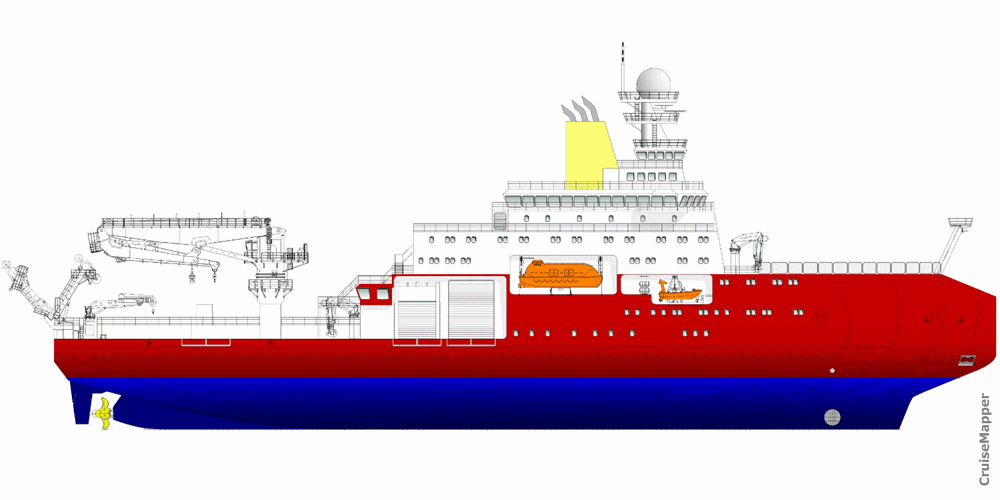
Other onboard facilities include electric winches (mechanical devices), containerized labs and workshops, dedicated scientific facilities (biosciences, geology and geophysical, oceanographic and atmospheric science), passenger staterooms, general lounge (mess hall), galley (kitchen), bar lounge, conference room (doubling as library), sauna room, fitness (gym room with exercise equipment), laundries, hospital (resident doctor).
- The ship is powered by Rolls-Royce marine diesel engines (model "Bergen B33:45"), of which two 9-cylinder (power output 5400 kW) and two 6-cylinder) (power output 3600 kW).
- Propulsion is Rolls-Royce (diesel-electric) with 2-shafts, 5-bladed (4,5 m / 14,8 ft diameter) controllable pitch propellers.
- Rolls-Royce Marine is also the supplier of the ship's automation and control systems, as well of its dynamic positioning system, the Unified Bridge and deck handling systems.
- Displacement tonnage: 12,790 tons
- Max Draught: 7 m (23 ft)
- Icebreaking capacity: 2,5 m (8 ft). Ship's speed when breaking through 1 m (3 ft) thick ice is 3 knots (5,6 kph / 3,5 mph).
- Ice-class DNV GL ICE-05 (hull)
- Range: 35,000 km (22,000 ml)
- Endurance: 60 days
The ship has one fore-located helipad (helideck and hangar) with capacity 2 small-sized helicopters. Two lifeboats are positioned portside and starboard, each with capacity 90 people. The boats are UK-built and can be operated at temperatures down to -35 C (-31 F).
For safety reasons, passengers (scientists, cruise tourists) are not allowed in the following areas and facilities (unless specific permission has been granted): Navigation Bridge, Engine Room, all machinery spaces, galley (kitchen), engineering workshops, crew areas (cabins, Crew Mess Room, Crew Bar).
Scientific staff (60 passengers) is accommodated on the ship in 2-3-4-berth staterooms. Each passenger cabin is equipped with en-suite bathroom (WC-shower-washbasin). Cabins shouldn't be locked while the ship is at sea (only when in port).
Note: In the case of poor AIS coverage, tracking the vessel's current location is impossible. You can see the CruiseMapper's list of all icebreakers and ice-breaking research ships in the "itinerary" section of our Icebreakers hub. All states and their fleets are listed there.
RRS Sir David Attenborough icebreaker ship related cruise news
- Cruise Industry
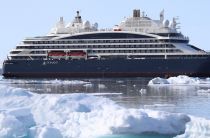
Two icebreakers - Ponant's Le Commandant Charcot and RRS Sir David Attenborough, working on an...
Ponant' icebreaker Le Commandant Charcot and RRS Sir David Attenborough icebreaker both entered service in 2021 with their missions to sail in the...
February 14, 2022 - show more news
RRS Sir David Attenborough icebreaker Wiki
Cammell Laird's 4-year shipbuilding project Cammell started on October 17, 2016, with the keel-laying ceremony. The ship's official naming was in September 2019. The project involved 1300+ personnel and hundreds of subcontractors and suppliers.
On August 21, 2017, the ship's stern section (aka Block 10) left the A&P Tyne shipyard and on August 31 was delivered to Cammell Laird's shipyard (Birkenhead, England). Commissioned by NERC (UK's Natural Environment Research Council), the polar research vessel is constructed by the shipbuilding company Cammell Laird (UK's largest ship repair and vessel conversion company). A&P Tyne's engineers and manufacturers invested over 175,000 man-hours to construct the 899-ton stern section (length 23 m / 75 ft, width 24 m / 79 ft).
On July 14, 2018, was the ship's launch (hull's float out from drydock), attracting numerous spectators at Albert Dock and Otterspool Park (Mersey River's Liverpool side).
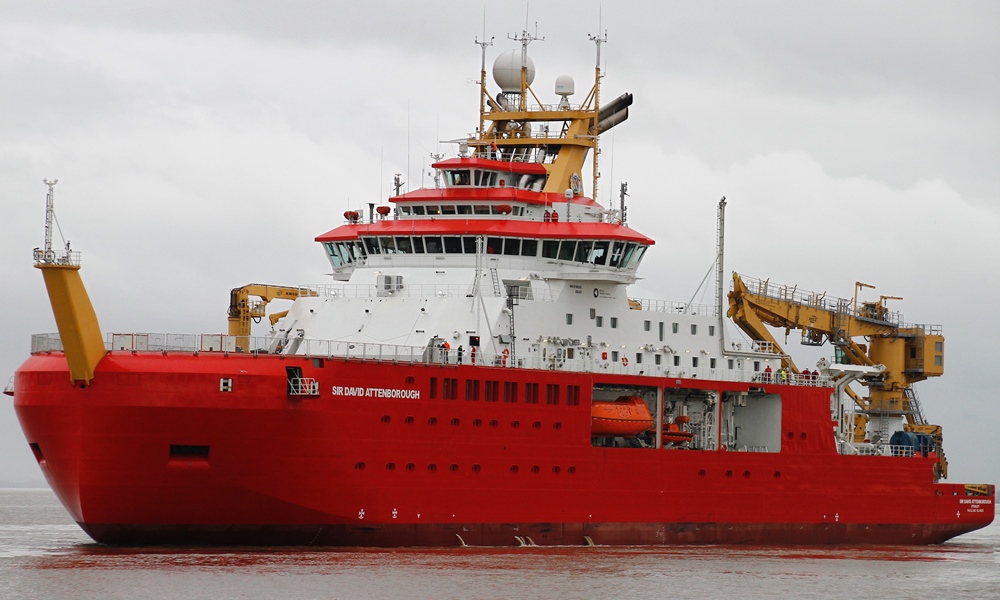
The Rolls-Royce Bergen B33-45 engines (two 9- and two 6-cylinder) provide both propulsion and electric power generation. These engines run on ULSD (ultra-low-sulfur diesel) fuel and are fitted with Selective Catalytic Reduction and electronic management systems. The icebreaker complies with IMO's both standards - Tier 2 and Tier 3.
In order to allow underwater survey works, the ship design required the lowest possible levels of underwater radiated noise. This was accomplished by using modern diesel generator sets providing power to the vessel's electrical system and batteries (5 MW peak effect capacity). Using batteries additionally reduces fuel consumption, emissions, and vibrations. The risk of sea pollution is also reduced by using electrical instead of hydraulic winches.
On October 21, 2020, the ship left Cammell Laird for sea trials off North Wales (completed on November 17), including navigation, maneuvering, GPS dynamic positioning, anchoring, helideck landing. After the technical tests, the ship was crewed (crew training was conducted at Holyhead, Isle of Anglesey, Wales). Followed Irish Sea trials of the onboard scientific equipment.
The vessel's delivery to NERC was scheduled for November 2020. NERC operates the vessel via BAS (British Antarctic Survey). The maiden voyage to Antarctica was scheduled for November 2021. The naming ceremony was on September 26, 2016. The ship was officially acquired on December 2, 2020, and after the sea trials delivered by Cammell Laird Shipbuilders on March 1, 2021. The delivery ceremony was attended by Dame Jane Francis (BAS' Director), Linton Roberts (Cammell Laird's Operations Director) and Mike Williams (LR Marine's Delivery Manager for UK-Ireland). LR Marine & Offshore (Lloyd's Register) is an Aalborg Denmark-based global provider of ship classification, compliance and consultancy services.
The vessel (IMO number 9798222) is Falkland Islands UK-flagged (MMSI number 740405000) and registered in Port Stanley.



